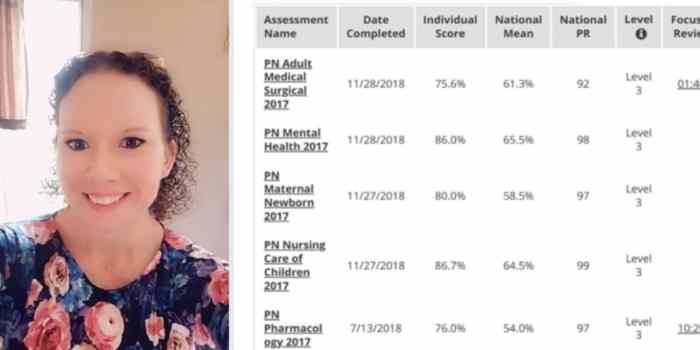RN Mental Health 2019 with NGN Proctored, an intriguing topic that unveils the challenges faced by registered nurses in maintaining their mental well-being amidst the implementation of NGN proctored exams. This discussion delves into the prevalence of mental health issues among nurses, the impact of proctored exams on their stress levels, and strategies for promoting their mental health in the years to come.
The prevalence of mental health issues among nurses is a growing concern, with factors such as workload, stress, and lack of support contributing to these challenges. The implementation of NGN proctored exams has further exacerbated these concerns, with studies indicating a significant increase in stress, anxiety, and other mental health issues among nurses.
RN Mental Health Trends in 2019

Mental health issues among registered nurses (RNs) have become increasingly prevalent in recent years. Studies have shown that RNs experience higher rates of depression, anxiety, and burnout compared to the general population.
Factors contributing to these mental health concerns include:
- High workload and long hours
- Exposure to traumatic events
- Lack of support from colleagues and supervisors
Impact of NGN Proctored Exams on RN Mental Health
The implementation of NGN proctored exams has raised concerns about its potential impact on the mental well-being of RNs. These exams require nurses to take their exams under the supervision of a proctor, which can be stressful and anxiety-provoking.
Studies have found that proctored exams can lead to increased levels of stress, anxiety, and depression among nurses. This is likely due to the perceived pressure to perform well and the fear of failing the exam.
Strategies for Promoting RN Mental Health in 2023
There are a number of effective strategies that can be implemented to promote mental health among RNs in 2023.
Role of Employers and Healthcare Organizations, Rn mental health 2019 with ngn proctored
- Provide flexible work schedules and paid time off
- Offer employee assistance programs (EAPs) and counseling services
- Create a supportive work environment
Role of Individual Nurses
- Practice self-care techniques such as exercise, meditation, and mindfulness
- Seek support from colleagues, friends, and family
- Utilize mental health resources such as EAPs and counseling services
Comparison of Mental Health Support Resources for RNs
There are a number of different mental health support resources available to RNs, including:
- Employee assistance programs (EAPs)
- Counseling services
- Peer support groups
Each of these resources has its own strengths and weaknesses.
EAPs are typically provided by employers and offer a range of services, including counseling, financial assistance, and legal advice.
Counseling services can be provided by licensed therapists and can help nurses to address a variety of mental health issues.
Peer support groups can provide nurses with a sense of community and support from others who are going through similar experiences.
Role of Technology in Supporting RN Mental Health: Rn Mental Health 2019 With Ngn Proctored
Technology has the potential to play a significant role in supporting the mental health of RNs.
There are a number of apps and online therapy platforms that can provide nurses with access to mental health care.
Wearable devices can also be used to track stress levels and provide feedback to nurses on their mental health.
Questions Often Asked
What are the common mental health issues faced by nurses?
Nurses often experience high levels of stress, anxiety, depression, and burnout due to the demanding nature of their work.
How do NGN proctored exams affect the mental health of nurses?
NGN proctored exams can increase stress and anxiety levels among nurses due to concerns about technical difficulties, privacy issues, and the potential for bias.
What strategies can be implemented to promote RN mental health?
Effective strategies include providing employee assistance programs, access to counseling services, and creating a supportive work environment that fosters open communication and reduces stigma around mental health issues.